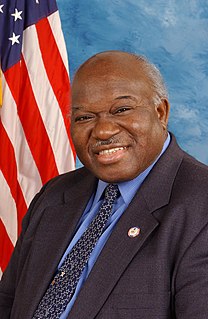A Quote by J. William Fulbright
International educational exchange is the most significant current project designed to continue the process of humanizing mankind to the point, we would hope, that men can learn to live in peace-eventually even to cooperate in constructive activities rather than compete in a mindless contest of mutual destruction....We must try to expand the boundaries of human wisdom, empathy and perception, and there is no way of doing that except through education.
Quote Topics
Activities
Boundaries
Compete
Constructive
Contest
Continue
Cooperate
Current
Designed
Destruction
Doing
Education
Educational
Empathy
Even
Eventually
Except
Exchange
Expand
Hope
Human
Human Wisdom
International
Learn
Live
Mankind
Men
Mindless
Most
Must
Mutual
Peace
Perception
Point
Process
Project
Rather
Significant
Than
Through
Try
Way
Wisdom
Would
Related Quotes
Of all the joint ventures in which we might engage, the most productive, in my view, is educational exchange. I have always had great difficulty-since the initiation of the Fulbright scholarships in 1946-in trying to find the words that would persuasively explain that educational exchange is not merely one of those nice but marginal activities in which we engage in international affairs, but rather, from the standpoint of future world peace and order, probably the most important and potentially rewarding of our foreign-policy activities.
Educational exchange can turn nations into people, contributing as no other form of communication can to the humanizing of international relations. Man's capacity for decent behavior seems to vary directly with his perception of others as individual humans with human motives and feelings, whereas his capacity for barbarism seems related to his perception of an adversary in abstract terms, as the embodiment, that is, of some evil design or ideology.
Human rights education is much more than a lesson in schools or a theme for a day; it is a process to equip people with the tools they need to live lives of security and dignity. On this International Human Rights Day, let us continue to work together to develop and nurture in future generations a culture of human rights, to promote freedom, security and peace in all nations.
We must learn to outgrow our egos in exchange for constructive dialogue rather than debate. In addition, we must be capable of stating problems and proposing solutions clearly and succinctly, without distortion of meaning or misunderstanding, even when these solutions are radically opposed to accepted norms.
A few really dedicated people can offset the masses of out of harmony people, so we who work for peace must not falter, we must continue to pray for peace and to act for peace in whatever way we can. We must continue to speak for peace and to live the way of peace; to inspire others, we must continue to think of peace and know that peace is possible. What we dwell upon we help bring to manifestation. One little person giving all of her time to peace makes news. Many people giving some of their time can make history.
The education of our people should be a lifelong process by which we continue to feed new vigor into the lifestream of the Nation through intelligent, reasoned decisions. Let us not think of education only in terms of its costs, but rather in terms of the infinite potential of the human mind that can be realized through education. Let us think of education as the means of developing our greatest abilities, because in each of us there is a private hope and dream which, fulfilled, can be translated into benefit for everyone and greater strength for our Nation.
We must be educated in inner human modesty, so we can recognize that we are not, even for a moment, complete as human beings. Instead, we continue to develop from birth until death. We must recognize that every day of life has a special value, that it is not without purpose that we must learn to live through our thirties right after we have just gone through our twenties. We need to learn that each new day and each new year offers continual revelation.
Through all the centuries of the worship of the mindless, whatever stagnation humanity chose to endure, whatever brutality to practice-it was only by the grace of the men who perceived that wheat must have water in order to grow, that stones laid in a curve will form an arch, that two and two make four, that love is not served by torture and life is not fed by destruction-only by the grace of those men did the rest of them learn to experience moments when they caught the spark of being human.
There's no other way to learn about it, except through documentaries. I encourage documentarians to continue telling stories about World War II. I think documentaries are the greatest way to educate an entire generation that doesn't often look back to learn anything about the history that provided a safe haven for so many of us today. Documentaries are the first line of education, and the second line of education is dramatization, such as The Pacific.
The world state must begin; it can only begin, as a propaganda cult, or as a group of propagandist cults, to which men and women must give themselves and their energies, regardless of the consequence to themselves The activities of a cult which sets itself to bring about the world-state would at first be propagandist, they would be intellectual and educational, and only as a sufficient mass of opinion and will had accumulated would they become to a predominant extent politically constructive. Such a cult must direct itself particularly to the teaching of the young.































